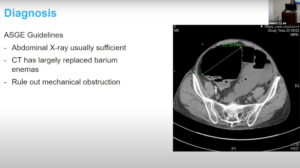NEW YORK (Reuters Health) – Women with latent celiac disease — positive celiac antibodies but a normal small bowel biopsy — may be at increased risk of reproductive problems, Indian researchers report in a November 24th online paper in Fertility and Sterility.
“Women having unexplained infertility, recurrent abortions, stillbirths or intrauterine growth retardation could have subclinical celiac disease, which can be detected by serological screening tests,” Dr. Ashok Kumar told Reuters Health by email.
Dr. Kumar, of Maulana Azad Medical College & Lok Nayak Hospital, New Delhi, and colleagues note that “the prevalence of latent or subclinical celiac disease has increased” due to the availability of improved and more accessible diagnostic screening tools.
Women with full blown untreated celiac disease, confirmed by biopsy, are known to have reproductive problems if the disease if they don’t adhere strictly to a gluten-free diet. But as the authors point out, “There are a very few studies regarding the effect of latent celiac disease on reproductive performance; the association has never before been investigated in India.”
To do so, the researchers studied 893 women. Of these, 104 had had idiopathic recurrent abortion, 104 had unexplained stillbirth, 230 had unexplained infertility, and 150 were pregnant and had idiopathic intrauterine growth restriction. The remaining 305 women, with normal obstetric histories, acted as controls.
Compared to controls, based on IgA tTG antibody titers, latent celiac disease was 5.43 times more likely to occur in the group with recurrent spontaneous abortion. The prevalence was 4.61 times greater in the group with stillbirth, 7.75 times in the group with intrauterine growth restriction, and 4.51 times in those with unexplained infertility.
The researchers also note that rates of previous preterm births, low-birth-weight infants, and cesarean section were higher in seropositive than seronegative subjects.
Not all studies reflect an association with reduced fertility, the researchers concede, but a number indicate a higher risk of untoward outcomes (see Reuters Health report of April 20, 2005). Risks also may be reduced when the disease is recognized and treated with a gluten free diet.
Moreover, they point out that “the classic presentation of diarrhea and malabsorption is now less common, and atypical and silent presentations are increasing.”
In light of these findings, Dr. Kumar concluded, “Serology for celiac disease should be included in the workup of idiopathic cases of poor reproductive performance.”
Reference:
Latent celiac disease in reproductive performance of women
Fertil Steril 2010.




